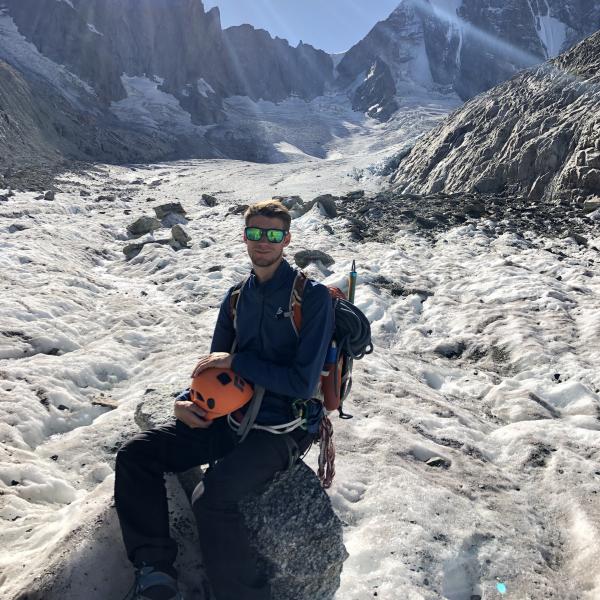Will Wenban
School of Geography and Planning
PhD Candidate


Full contact details
School of Geography and Planning
Geography and Planning Building
Winter Street
Sheffield
S3 7ND
- Profile
-
I achieved my BSc in Physical Geography from the University of Southampton in 2017.
After a brief stint in a graduate job I quickly realised that normal office jobs weren't for me and left to go and work in the French Alps for 2 years, including a role as a resort manager for a premium ski holiday operator. During this time I cemented my love for mountain environments and the cryosphere and decided to return to academia to pursue a long-held interest in Glaciology.
I joined the Department of Geography at Sheffield for the Polar and Alpine change MSc course in 2019 and have stayed on after to pursue a PhD under the same supervisor.
Deciphering the Influence of Glacial Erosion on Alpine Landscape Evolution Through a Novel Application of Thermoluminescence Thermochronometry
Landscapes across the Earth have been profoundly shaped and developed through periods of successive glaciation. Unique features such as U-shaped valleys, cirques, large bedrock steps and overdeepened basins give glacial valleys a distinctly different profile signature to fluvial catchments. But beyond this visible qualitative evidence of glaciers as highly effective erosive agents, there remains much debate and ambiguity on the quantitative rates and governing controls of glacial erosion. How quickly can glaciers erode the landscape into the rugged topography we see in mountain ranges today? Why do glacial profiles appear to contain regions of spatially enhanced (steps, overdeepened basins) or diminished (riegel ridges) erosion and how dynamic are these features?
Gaining a greater understanding and insight into the mechanisms and timings of glacial erosion is important not only to further our scientific understanding of glaciology – permitting improved modelling of glacial responses to climate change – it also carries socio-economic value, with deglaciating catchments around the world presenting many new challenges and opportunities to local communities – e.g. overdeepened basins can become new large natural reservoirs of fresh water. Nations like Finland and Switzerland have also begun plans to dispose of nuclear waste by sealing it deep inside bedrock caverns, which requires certainty that it will not be exhumed by any future glacial action in millennia to come.
The overarching aim of my PhD work is to improve our understanding of glacial erosion at the sub-catchment scale. This will be achieved through a dual approach of computer modelling to look at the theoretical evolution of glacial catchments, which is then tested and constrained by empirical field data.Field data is acquired through bedrock samples taken during fieldtrips to the Swiss Alps – the first of which is taking place in September 2021. These samples will then be analysed in the luminescence lab back at Sheffield, where a novel method of thermoluminescence thermochronometry will be used to decipher their exhumation history. Thermochronometry is the measurement of the cooling history of rocks as they are exhumed through geothermal gradients in the crust and the thermoluminescence method involves heating the samples back up to high temperatures and measuring emitted luminescence signals to gather information on this history.
This should provide direct field evidence of erosion rates along the glacial profile which will influence our theoretical understanding of the processes involved through improved glacial erosion laws and computer modelling.Supervisors: Dr Darrel Swift & Professor Ed Rhodes
- Professional activities and memberships
-
Member of the Royal Geographic Society, British Society for Geomorphology and International Glaciological Society.
